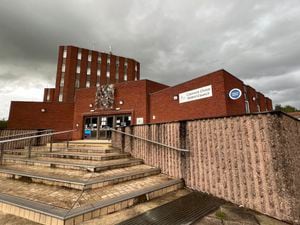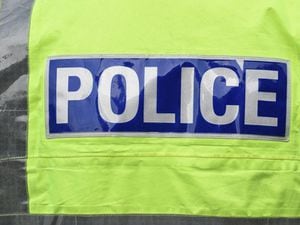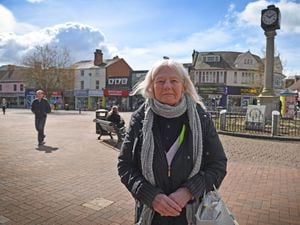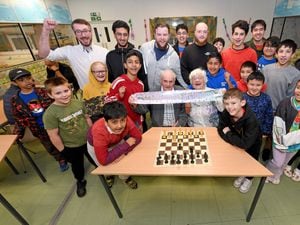Dutch family adopts fallen Cannock soldier's grave and hopes to track down relatives
A Dutch family has adopted the grave of a fallen Cannock soldier – and is now hoping to track down his relatives to find out more about him so that his story can be told and his memory honoured.
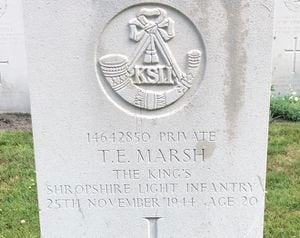
Private Thomas Enoch Marsh was only 20 when he was killed in action in November 1944 while serving with the 2nd Battalion of the King's Shropshire Light Infantry. He is buried at Venray war cemetery in the Netherlands and his name is also recorded on Cannock war memorial.
Thomas Martens, who lives near the cemetery where 700 are buried, has got in touch with the Star to say: "A local paper asked families to adopt the graves to find out who is lying there, so we adopted the grave of Private Thomas Enoch Marsh, who carried the same name as I do. He lived in Cannock.
"In the meanwhile I discovered what happened that day. I even found eyewitnesses who are still alive.
"But I want to find out more. I don't yet have any photos of Thomas Marsh, and I want to find out if there are relatives who I can talk to.
"Can you help us with more information? Then we can give Thomas Marsh the memory and appreciation he deserves. Also for the history of our small village it is important. While we remember always the big events, this particular story will be very interesting for the local history and awareness.
"We want to visit Cannock and the Shropshire Light Infantry museum later this summer.
"We are determined to honour Thomas Marsh so that we do not forget his sacrifice and that of all British soldiers. It is precisely the small stories that appeal to the imagination, hence the effort to give a face to all 700 soldiers who are buried there.
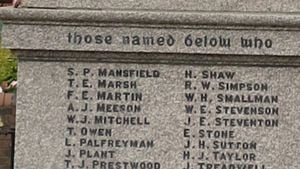
"I am 50 years old but for us the Second World War is everywhere. And especially now that the people who witnessed the war are becoming of old age or are not here anymore.
"After the war nobody talked about the war so our grandparents did not tell us anything. My parents were born during the war but that generation couldn’t ask what happened
"We want to give a face to all 700 fallen victims who are buried in the war cemetery in Venray. Everyone knows the broad outline of what happened, but no one knows the story of the individual soldier.
"It is very important to keep the memory alive and of course to make sure that we don’t forget what the price of freedom is.
"Anyone who can help with information can contact me at thomasmartens@ziggo.nl by email."
Private Marsh was the son of Thomas and Florence Maud Marsh of Chadsmoor.
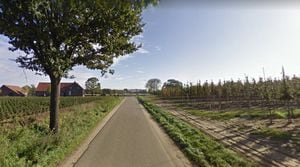
Although his death is recorded as being on November 25, 1944, Thomas has been in correspondence with a historian who believes he actually died the previous day, because according to the battalion's war diary nobody was killed on the 25th, and Thomas had been killed on the spot, rather than died of wounds later.
The unnamed historian thinks it is likely that Thomas died when a patrol encountered resistance at a house on the outskirts of the village of Meerlo, where Dutch civilians had tipped off the British that about a dozen Germans were lying in wait in ambush. Records show one British soldier was killed and two injured in the clash.
Reinforcements were then called, supported by anti-tank guns, and almost all the Germans were killed. In the cellar were 15 civilians, mostly women and children, including a little girl who was wounded.
Thomas said: "I have found the girl, Jo van Dijkc, who was injured in the cellar. She is still alive, as is her brother, and I'm going to have a good talk with them as soon as coronavirus allows it. She was 10 years old at the time."

